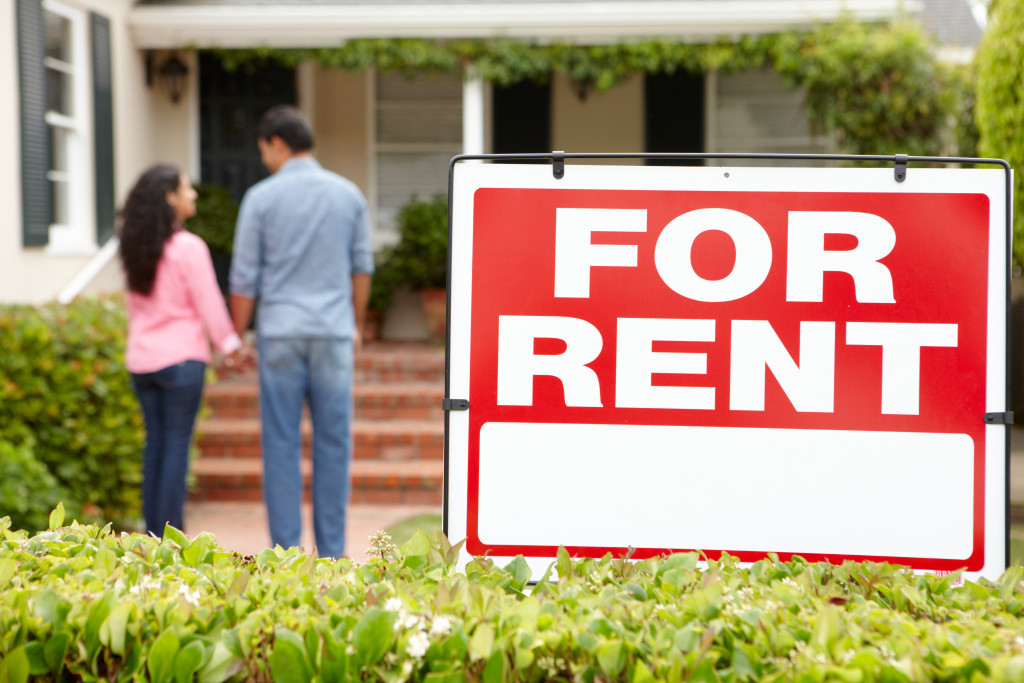- Conduct market research to identify the target audience, understand competition, and research local laws and regulations.
- Create a solid business plan with goals, strategies, financial projections, and a SWOT analysis.
- Obtain funding from investors or banks to cover startup costs and acquire properties.
- Ensure properties are rent-ready through renovations and purchase of items.
- Utilize technology to manage finances, marketing campaigns, and tenant communication.
According to 2017-2021 data from the U.S. Census Bureau, over 35 percent of households in the U.S. are renters. Renting a home is currently more expensive due to rising mortgage rates. Although rents are increasing slower than in 2021, they are still growing faster than before the pandemic.
Starting your own property rental business can be a great way to generate income and achieve financial independence. But, like any startup, it requires planning, resources, and a clear understanding of the industry. This blog post will explore the steps you need to take to set up your own property rental business and make it a success.

Conduct Market Research
The first step in setting up a property rental startup is to conduct market research. You need to identify your target audience, the types of properties they are looking for, and the rental rates in your area. You should also research your competition and determine what they are offering, what their strengths and weaknesses are, and how you can differentiate yourself.
Local Laws and Regulations
Additionally, you should research the local laws and regulations regarding rental properties and any potential tax implications. Finally, consider creating a marketing plan to help you reach your target audience and spread the word about your business. You may also want to look into hiring a professional real estate attorney and accountant to help ensure that everything is done correctly from the start.
Create a Solid Business Plan
A business plan is a roadmap for your property rental startup. It should include your goals, strategies, financial projections, and a SWOT analysis. A SWOT analysis stands for strengths, weaknesses, opportunities, and threats. You should identify what your startup does well, what it needs to improve, what options you have to grow your business, and what external factors could impact your success.
Detailed Financial Projections
Your business plan should also include detailed financial projections. This should include your startup costs, the money you need to launch, and your expected revenue and profits. You should also have a budget for marketing and operations so that you know exactly how much money you will need to spend each month. Additionally, outline any potential risks or challenges and how you plan to manage them.
Obtain Funding
Starting a property rental business can be expensive. You may need funding from investors or banks to cover the costs of acquiring properties, renovations, and marketing. Before seeking financing, ensure you have a solid business plan and a clear understanding of your financial needs.
Research Funding Sources
When you are ready to seek funding, research potential investors and lenders specializing in real estate investments. Make sure to understand their terms and conditions before agreeing with them. You can also consider looking into getting a mortgage. In this situation, you should work with reputable mortgage lenders. The lender should be able to provide you with the best options for your business.
Acquire Properties and Ensure They are Rent-Ready
Once you have secured funding, you can start acquiring properties. Make sure you choose properties in good condition and located in desirable areas. You should also ensure that the properties are rent-ready. This may include performing renovations, cleaning, and ensuring all appliances and systems are working.
Purchase Items for the Property
You may also need to purchase furniture, linens, and appliances for the property, depending on your rental agreement. Lastly, adhere to all applicable laws and regulations for renting a home or apartment.

Market and Manage Your Properties
Marketing plays a crucial role in the success of your property rental startup. You must create a strong brand, advertise your properties, and create a user-friendly website. You should also have a management system for maintenance requests, rent collection, and tenant screening. Staying organized is important, as rental properties require a lot of paperwork and legal considerations.
Utilize Technology
A good property rental business should simplify many processes using the latest technology trends. Utilizing cloud-based software can make managing your finances, marketing campaigns, and communications with tenants easier. Mobile apps can allow you to track rental payments, create checklists for maintenance tasks, and provide a platform for the tenant to submit repair requests. Automation tools can also help manage the various aspects of your business, such as rent collection or background checks on potential renters.
Starting a property rental business can be a viable and profitable venture. It requires careful planning, funding, and execution. Following the steps outlined in this blog post, you can set your property rental startup up for success. Always conduct market research, create a solid business plan, secure funding, acquire rent-ready properties, and market and manage your properties effectively.
